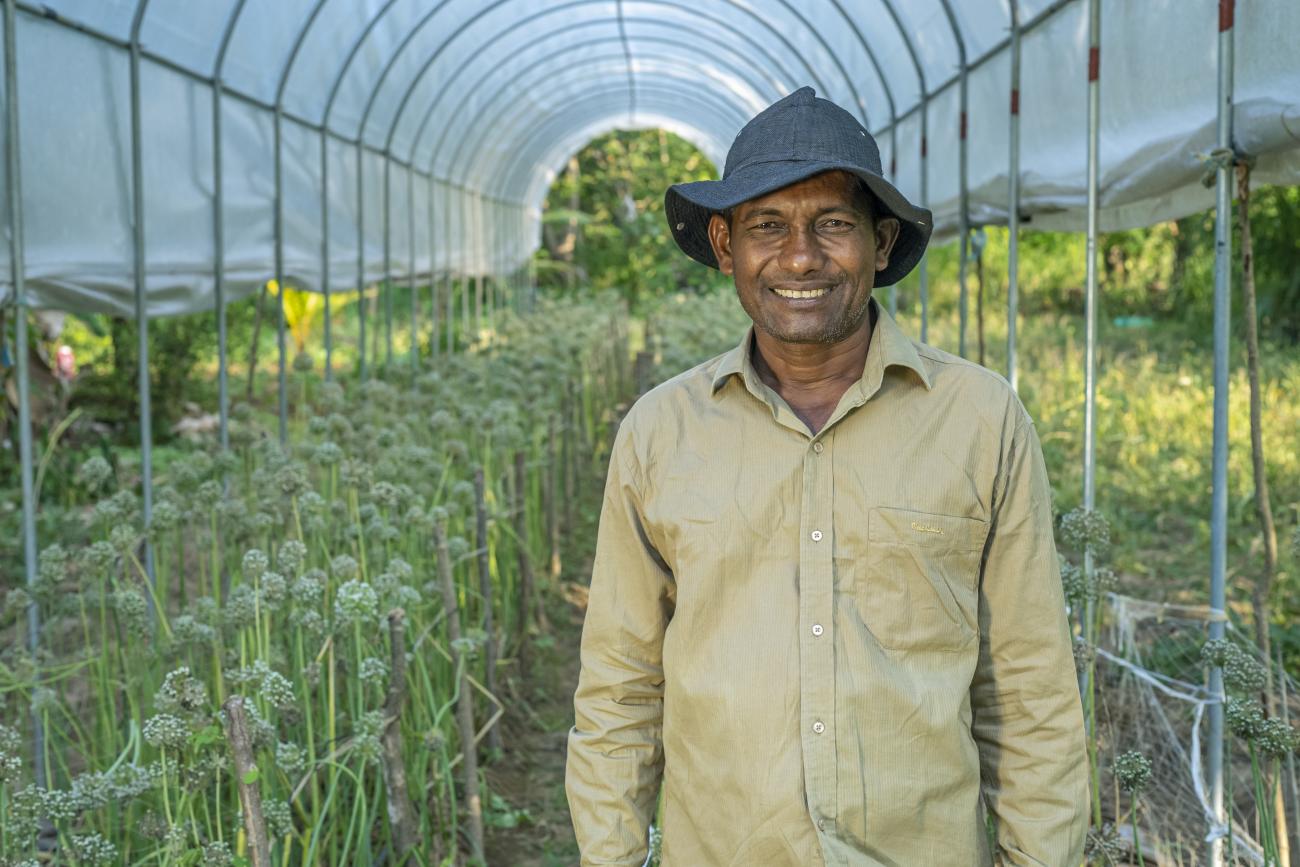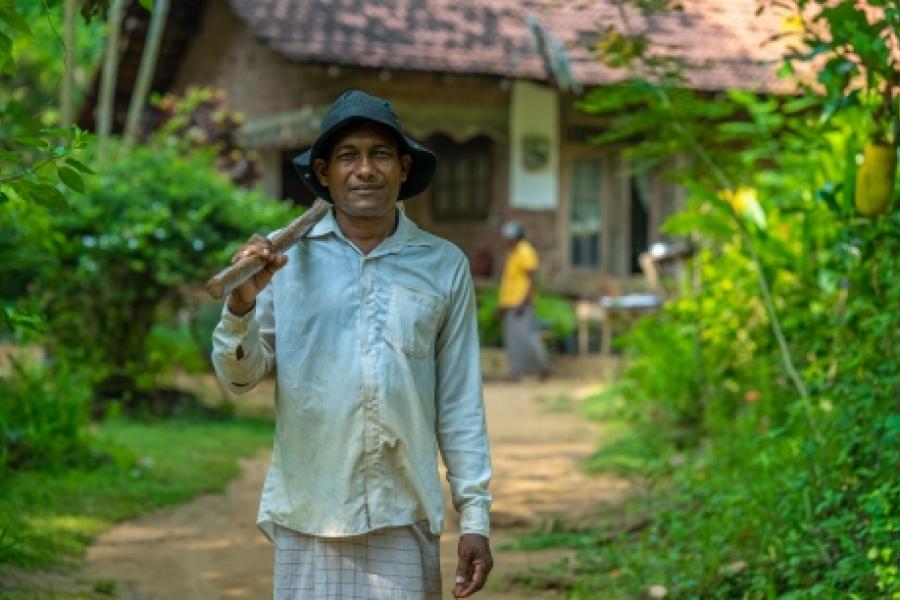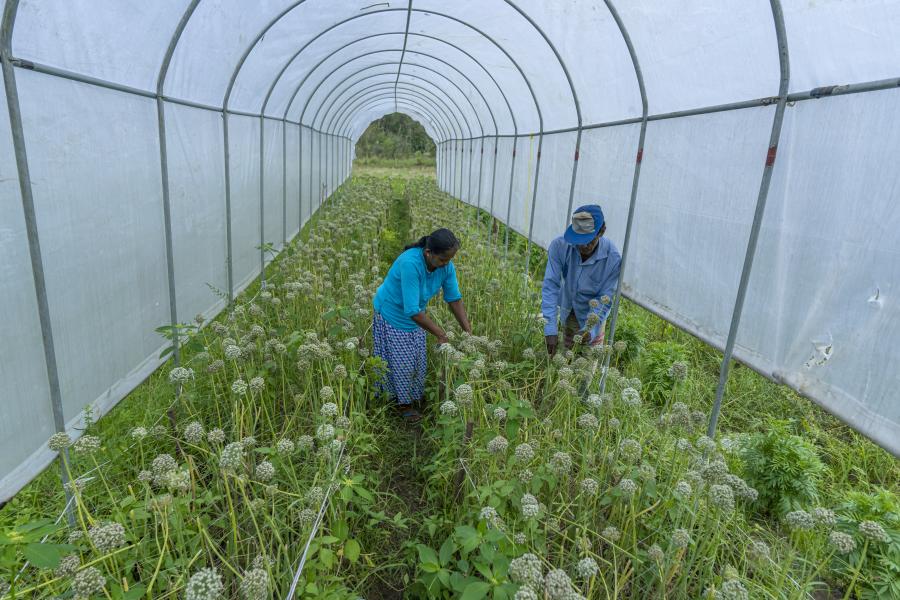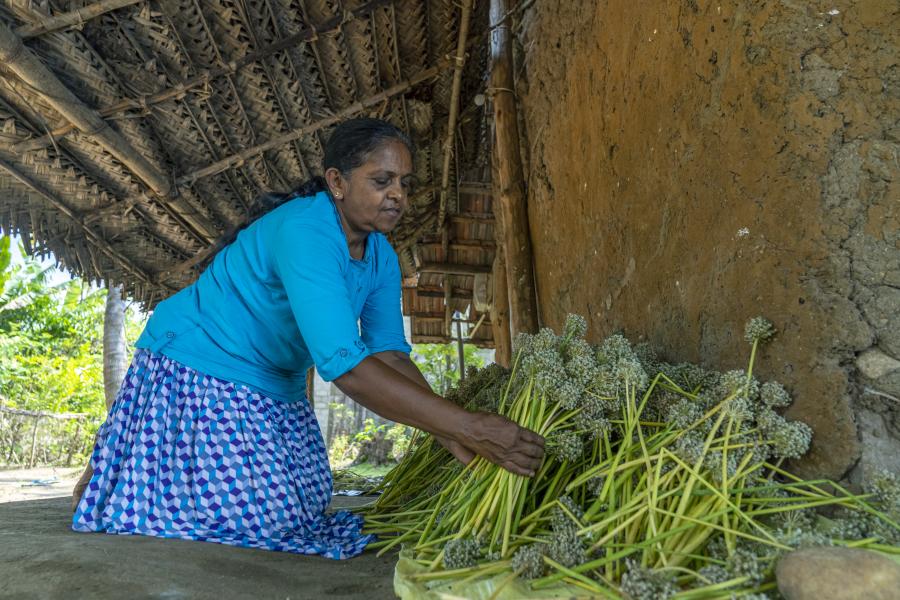Sri Lankan farmers reap success through innovative agricultural technologies

Better rain management and improved seed cultivation reinvigorate farmers’ onion production.
In his 30 years as a farmer, Illeperuma Arachchilage Rathnayake, or Rathnayake as he’s known in his village, struggled to unlock the full potential of his onion seed cultivation. He began cultivating this crop as a 22-year-old with no official training but relied on lessons and cues from other farmers in his area.
Lacking the resources and proper equipment to protect his crops, Rathnayake used bamboo trees and polythene sheets as makeshift shelters. But these structures could not withstand heavy rains and wind, often blowing away and leaving his crops exposed to the elements.
This unpredictable weather and excessive rains, in particular, have been the latest in a series of challenges for the farmers in the rural village of Kalugala, nestled in Sri Lanka’s northern Anuradhapura district.
"Although I have cultivated onions for many years, I was unable to achieve the harvest I desired due to various challenges, particularly the lack of proper rain shelters," describes Rathnayake.
As the sole breadwinner for his family, Rathnayake's income from farming not only sustains his household but also supports his children's education. Despite his determination, low yields and financial hardships often left him contemplating abandoning onion cultivation altogether.
An innovative project by the Food and Agriculture Organization of the United Nations (FAO), with generous funding from the government of Canada, rekindled Rathnayake's hope in his agricultural endeavors.
FAO supported Rathnayake and 91 other smallholder farmers in producing high-quality seeds for improved onion and chilli production, providing the necessary training and equipment. Seeds on their own can often make the difference between low and high yields. Starting with high quality seeds already sets farmers out for success.


Farmers in the northern, north-central and central provinces, who were engaged in traditional seed production methods, were selected to receive extensive training on how to adopt innovative technologies such as protected houses, polytunnels, rain shelters and micro-irrigation systems.
These advancements strengthened their crop management practices, providing a shield against pests and rain damage while maximizing water and fertilizer efficiency and reducing the need for chemical pesticides and weedicides. As a result, the seed cultivation thrived and the farmers’ yields soared.
Rathnayake explains, "In the past, we used makeshift rain shelters. They would often fail during heavy rains, resulting in losses as our seed nurseries got spoiled. I used to harvest around 2-3 kilograms of onion seeds but thanks to the new, high-quality rain shelters provided through the project, we are now expecting to harvest an impressive 12-15 kilograms of seeds per season."
Now that his cultivation is yielding better results, Rathnayake is able to save and plan for the future. “My wife and I discussed how we should use the increased profits and we both agree that we should invest the profit back into our farm and expand the amount of onion bulbs we cultivate next season. This way we can steadily grow our farm and maybe even save enough to buy a second rain shelter ourselves.”

Malani Senehelatha, a 55-year-old farmer from Kalugala village who also took part in the project, comments, "Once I participated in the training, I realized that I was not following the perfect method in seeding big onions. Thanks to the seed production training, I now feel confident in making my onion cultivation profitable. The rain shelter provided to me is an immense support."
The project worked with 92 women and men farmers and established seventeen rain shelters and five polytunnels across four districts, namely Jaffna, Killinochchi, Anuradhapura and Kandy. Sri Lanka’s Department of Agriculture is also using the farms supported by the project as demonstration sites to train more farmers on adopting innovative technologies, thereby ensuring the knowledge and innovative methods introduced by FAO continues beyond the project.
By empowering farmers with knowledge and equipping them with the necessary tools, FAO is enhancing Sri Lanka's vegetable crop productivity while fostering sustainable farming practices and ensuring increased yields through higher efficiency of inputs and lower operational costs.




